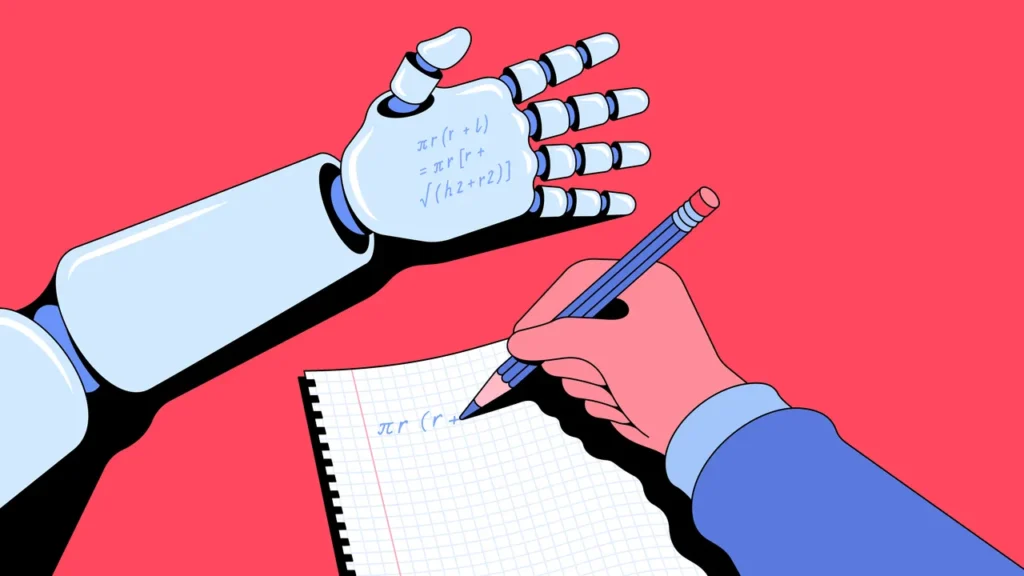In classrooms today, a quiet but powerful debate is unfolding. What does it mean to truly learn, and what counts as cheating? With the rise of artificial intelligence (AI) tools like ChatGPT, DeepL, Grammarly and others, students can now generate entire essays, polish grammar, summarise articles, or even translate complex texts with a few clicks. For teachers, this has blurred the once-clear line between hard work and academic dishonesty.
Casey Cuny, an English teacher with more than twenty years in the classroom, says he has never seen academic dishonesty at such high levels. He explained that almost any assignment given for home submission must now be assumed to have been touched by AI in one way or another. That reality has forced many schools to rethink whether traditional take-home essays still have value, or whether they have simply become “AI exercises.”
In Nigeria, this concern is beginning to echo in universities and secondary schools. With the high cost of education and pressure on students to perform well, some are tempted to cut corners with AI. But unlike older forms of malpractice such as copying from textbooks or hiring someone else to write an essay, AI cheating is harder to detect and far more widespread.

Table of Contents
Different Shades of AI Tools Misuse — And Confusion
One major issue is that students themselves are not always sure where help stops and cheating begins. Many genuinely believe they are only using AI as a study aid, not as a way to deceive. For example, some use AI to generate outlines before writing, or to proofread grammar. Others rely on translation tools like DeepL or Google Translate, especially when English is not their first language.
But even innocent use can sometimes create problems. In one case abroad, a student translated his work using AI, only to find that the tool “rewrote” parts of his essay. When the school’s AI detector flagged it, he was accused of plagiarism—even though he never intended to cheat.
This confusion is multiplied by inconsistent policies. Some teachers outright ban AI, while others allow its limited use for grammar checks or summarisation. In Nigerian higher institutions, lecturers also disagree. One professor might warn against any form of AI assistance, while another might even encourage students to test AI for brainstorming. The lack of clarity leaves many students feeling like they are walking blindfolded into a trap.
There is also the problem of AI detectors, which often make mistakes. Some students have been wrongly accused because a detector claimed their work was AI-generated. This creates anxiety and raises questions about fairness. As one university student in Lagos put it: “If my lecturer says my essay is AI-written, how do I even prove myself? The computer is like a judge and jury.”

Schools Adapting: New Rules, New Tests, New Ways to Assess
To tackle the issue, schools across the world are making big changes. The most obvious shift is moving away from homework-heavy assessments. Instead, many are focusing more on in-class writing, oral presentations, and real-time problem-solving. Teachers now ask students to write drafts in class, explain their reasoning out loud, or submit handwritten notes alongside digital essays.
In the United States, UC Berkeley has introduced a clear rule: every lecturer must include a policy on AI in their syllabus. Some say “no AI use,” others say “AI allowed only for grammar or spelling,” while a few even permit broader use. The point is to reduce the grey areas that confuse students.
Nigerian schools are beginning to follow similar paths, though more slowly. Some private universities have started adding clauses about AI use to their codes of conduct. Secondary schools are still largely unprepared, with many teachers unsure how to handle the issue. Yet, as AI tools become more common in everyday apps—Microsoft Word, Google Docs, or even WhatsApp—the need for clarity is urgent.
Another approach is rethinking the purpose of assignments altogether. If essays are meant to test a student’s thinking, perhaps the format needs to change. Some schools now focus on continuous assessment, project work, and group discussions. By diversifying evaluation methods, they make it harder for students to rely solely on AI shortcuts.
A Balanced Path Forward: Integrity, Understanding, Tool Use
The truth is that AI is not going away. Instead of fighting against it, many educators now argue that schools must learn how to live with it. The challenge is to draw a clear line between using AI as a supportive tool and using it to replace genuine effort.
A balanced path involves three things: clarity, literacy, and integrity.
- Clarity means teachers setting out clear rules. Is AI allowed for grammar checks? Can it be used to brainstorm ideas? Is translation acceptable? When expectations are explained, students can act responsibly without fear of being wrongly accused.
- Literacy means teaching students how AI works—its strengths, its biases, and its limitations. Rather than banning it blindly, schools can guide students on how to question AI outputs, cross-check information, and avoid over-reliance.
- Integrity means holding on to the core values of education: honesty, effort, and original thought. Students must learn that while AI can help polish their work, it cannot replace their own voice and critical thinking.

In Nigeria, where young people are increasingly tech-savvy, adopting this approach may not only protect academic honesty but also prepare students for a future where AI will be part of nearly every profession. If used responsibly, AI can become a partner in learning rather than a shortcut for cheating.
As one Nigerian teacher put it during a recent workshop: “We cannot fight the wind, but we can teach our children how to sail with it.” The rise of AI may have blurred the line between learning and cheating, but with the right balance, schools can still ensure that education remains a process of growth, not just a race for grades.
Join Our Social Media Channels:
WhatsApp: NaijaEyes
Facebook: NaijaEyes
Twitter: NaijaEyes
Instagram: NaijaEyes
TikTok: NaijaEyes





